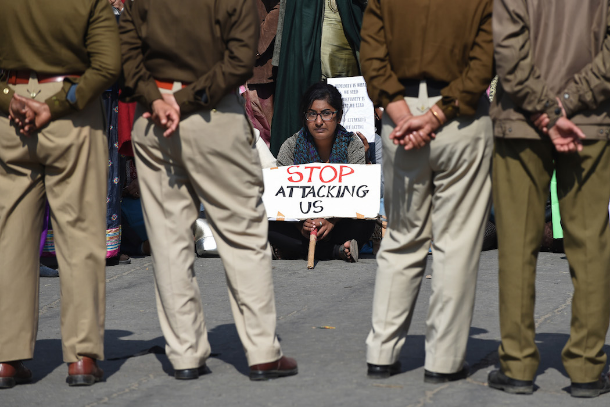A few years ago, church dealings with law-enforcement agencies were minimal. However, this is not the case now as violence and harassment against Christians have increased in recent times.Anti-Christian violence has risen sharply since 2014, when the pro-Hindu Bharatiya Janata Party (BJP) took power and groups supporting the party began promoting “Hindu-ness” (Hindutva) aimed at turning India into a Hindu state.Until about four years ago, Catholic Church leaders generally dismissed allegations that Christians were using fraudulent methods to convert people as “isolated incidents” made by fanatics.So too, were reports of mob violence against Christians, which were seen as targeting fervent pastors of neo-Christian Churches, and not something that affected Christians as a whole.At the time, mainstream churches believed everything seemed fine and did not foresee what was to come.
As a result, Christian leaders have been caught napping and lack the experience and resources needed to deal with resulting legal battles to defend the legal and fundamental right of Christians to practice their religion.These last few years have been challenging for the church. Many church organizations, including internationally renowned congregations like the Missionaries of Charity founded by St. Mother Teresa, have faced numerous allegations, forcing them to turn to the courts for legal remedies and protection.Most cases concern allegations by hard-line Hindutva groups of Christians violating laws to convert Hindus and poverty stricken Dalit and tribal people.Eight Indian states have laws criminalizing conversion via “fraudulent” means using “allurement” or “inducement.”Although no Christian has been convicted of such a crime, Christians say any service they offer could be misconstrued as “allurement.”Though some charges filed against Christian priests and pastors have not held water before the courts, the church finds itself swamped by a pestering mess of allegations that systemically presents Christians as law-breakers in the eyes of the public.There was even an instance where an attempted conversion case was filed because tea and biscuits were served at a public gathering. The church officials involved were taken to court.Prayer meetings in some northern Indian states attract large numbers of non-Christians, who mostly attend after hearing about acquaintances being healed from an affliction at such gatherings.Sometimes, people claiming to be sick go to gatherings and cry wolf when their so-called affliction is not cured. The pastor leading the prayer group is labeled a “fraud” and legal proceedings are initiated against him.Nearly 75 percent of court cases against Christians fall in this category.Most cases remain pending in various Indian courts because either the police or the complainant lack substantial evidence proving the allegations.Police complaints involving Christians continue to increase. In 2014 there were only 148 complaints filed with police involving Christians either as the complainant or accused. That number rose to 254 cases in 2017.Besides allegations of conversion, mob violence also remains a major challenge to Christians. In most cases, mobs enter churches or prayer halls while a service is in progress. They often shout slogans, desecrate religious objects and assault worshipers.In some incidents, the pastor or priest has been dragged to a police station and pressure put on police to file criminal charges of attempted conversion and offending Hindu religious feelings against them.Another legal issue confronting the Indian Catholic Church, are claims made on its institutions and land.In one typical example, Hindu students, instigated by hard-line groups, wanted to conduct an aarti (a holy Hindu ritual) inside a church-run college in Madhya Pradesh.Such moves are overt attempts to take control of Christian institutions in violation of constitutional provisions that allow minorities, such as Christians, to own and manage educational institutions.However, we have not seen a consolidated legal challenge from Christians against such attempts.In light of the legal assault the church finds itself under, its leaders need to become more skillful regarding the law if it wants to overcome existing legal battles and prevent future harassment through court cases.Michael is a Christian leader and rights activist based in New Delhi.



